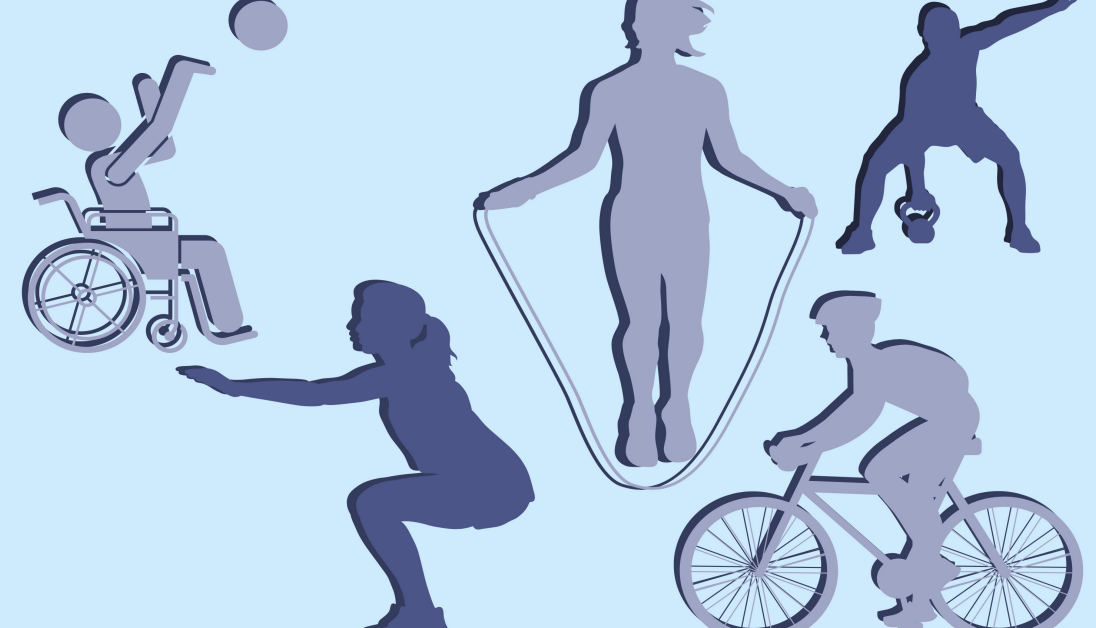Former University of the Sciences students, now matriculated as St. Joe’s students as a result of the merger between the schools, will no longer be required to take physical education (PE) courses as part of their graduation requirements.
Fall 2022 marks the last semester the required PE courses will be taught. Since the pandemic, the courses have been online and asynchronous.
Timothy Brittin ’28, who is taking PE 101 this fall, said he liked that the PE requirement encouraged a healthy lifestyle for students.
“One of the main benefits is that we can have physical education pushed on us, especially when we’re in the heat of all of our classes and having to deal with all these assignments,” Brittin said. “The fact that we have to submit something for physical education means that we’re going to at least try to get some cardio exercise or workout.”
When asked about the elimination of the two-semester PE requirement for graduation, Jim Boettcher, Ph.D., professor of philosophy and head of the general education program (GEP) committee, said changes in curriculum are usually designed to benefit students.
“Normally, when there are curricular changes, they are effective in order to make things better for students and more flexible for students,” Boettcher said.
Karin Richards, Ph.D., associate professor of health sciences, directed the former USciences physical education department and is also the instructor for the required PE courses. Richards declined to be interviewed for this story.
According to students who recently took the courses, the fall semester portion of the requirement consisted of an assignment about mental health and an activity log that required 15 cumulative hours of exercise throughout the semester. Students were responsible for the same activity log in the spring semester of their requirement, in addition to an online quiz.
Liang Jun Ren ’27 completed the PE requirement last year, and while he said he found the course useful, he didn’t like the asynchronous aspect.
“I probably would have preferred some sort of in-person check-in every once in a while,” Ren said. “This course was completely asynchronous online. Although I felt obligated to finish the activity log, there was no sort of real accountability.”
But Ren said he does believe that his physical health has benefitted from the required PE course.
“There was something there that kept on nagging in the back of my mind saying, ‘You have to do this. Just get it done. Maybe go for a light jog or go for a quick 20-30 minute weightlifting session,’” Ren said. “It probably helped me in that way. I don’t think I would have gone to the gym as often if there was no course requirement.”
In Pennsylvania, all students K-12 must be provided with planned physical education instruction, according to the Pennsylvania Department of Education, but that requirement does not extend to colleges and universities. Some, like Haverford College, still require the completion of PE courses for graduation.
Susan McCabe, assistant to the director of athletics at Haverford College, said there are many benefits to having PE requirements in secondary education, such as mental health awareness. She also said it can expose students to the benefits of practicing physical wellness.
“This almost forces them to be in the fitness center and realize that there’s a host and a variety of all different people in the fitness center, and it’s not as intimidating maybe as they had thought,” McCabe said.
McCabe said there has been pressure over the years for Haverford to eliminate the PE requirement from their curriculum, largely because many students are already involved in physical extracurricular activities.
“There is definitely some pushback because it’s a pretty physically active campus, but they’re doing things that we can’t give credit for legally, because it doesn’t fall in line with our insurance, having it done off-campus,” McCabe said.
Daphne van der Molen ’23, who completed the requirement in 2019 during her first year at USciences, wrote in response to questions from The Hawk that she does not think “much will be lost by removing this requirement.” But she said she does hope some of the course content will be covered elsewhere.
“I hope that the discussion about alcohol, drug use and sexual assault/harassment remains included in discussions in some shape or form, but the other aspect of PE did not really provide much,” van der Molen said.















































